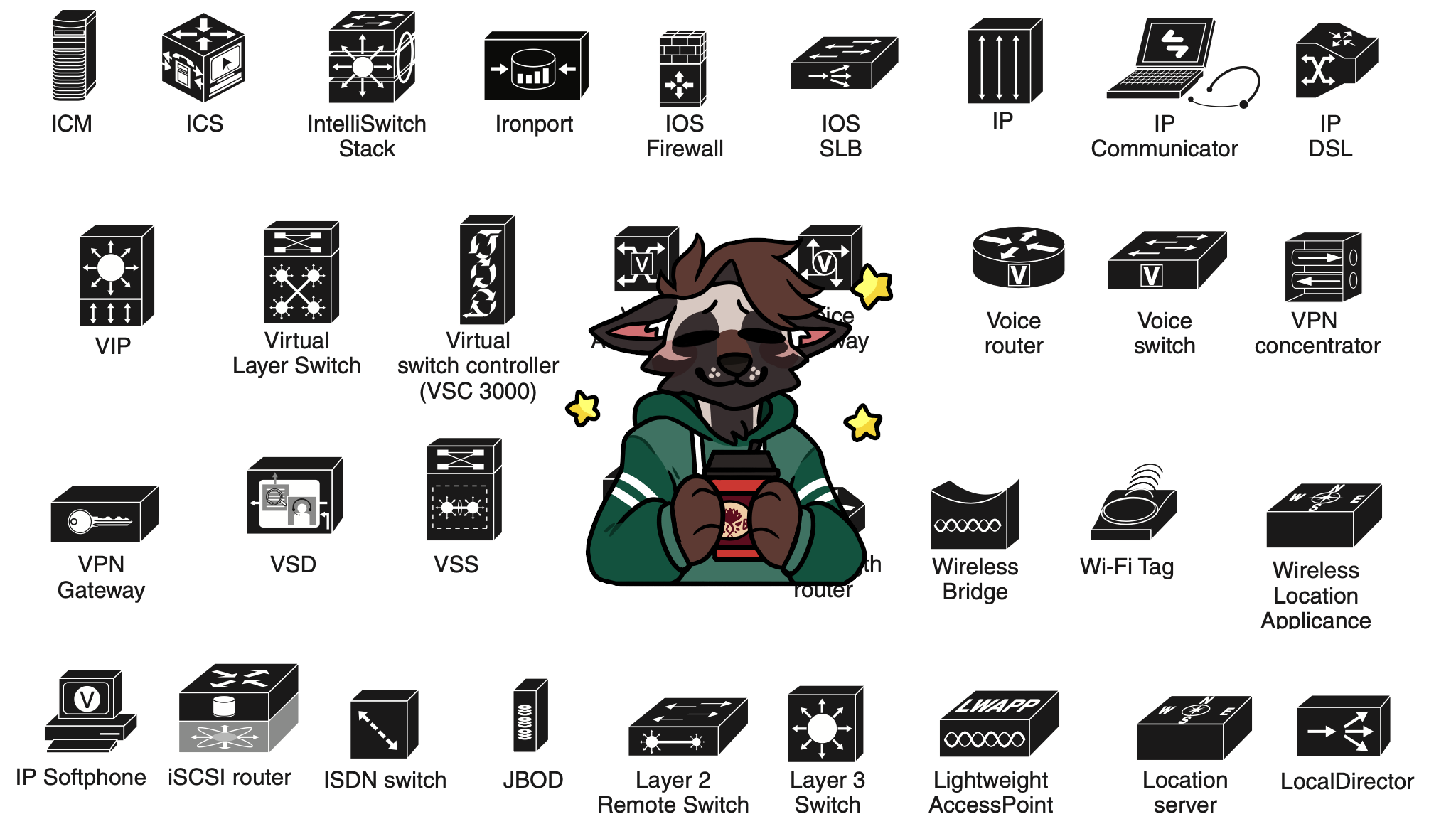Why are there so few (IT) Networking Furries?
Posted: 2024-07-20
Furries in IT isn't anything new. Lots of Comp Sci, DevOps, and Security. But what about the network?
To preface, this is IT Networking, not social networking that I'll be referring to today.
There are plenty of IT furries that exist, most of which I have found work in one of three IT disciplines:
- Development / Programming
- Cyber Security
- Systems Administration
From my personal experience that is about 60%, 25%, and 10% respectively. The remaining 5% of them? I'd classify as "Other"/Network Engineering. I have met only one other furry that actually is a Network Engineer. Which is odd because given the many disciplines that exist, there are little to few furries that want to get into Network Engineering. In fact, it's not only furries, it's the entire Network industry that's in trouble.
What I think is a big driver of this is the inability to be creative, that many of the technologies that currently exist will continue to exist. With so many RFCs and standards, there's little room for someone at the bottom to actually want to contribute or learn. No one wants to learn how spanning tree actually works, and most companies are throwing "AI" at the problem since it's so "old school".
There's so many building blocks in Network Engineering that someone that wants to attempt to get into the discipline makes it extremely daunting. You have to learn the basics, and there aren't any shortcuts. You have to dive first into it, and many organizations don't want to take a gamble for someone to "hopefully" learn. They expect at the very least a CCNA which is good if you want to learn the theory, but if you actually learn? You need to be hands on with the actual equipment, and think of the networking portions specifically. Even if you are on the help desk taking phone calls think about things from not only the help desk perspective, but think about it from the Networking perspective or the SysAdmin perspective.
The lack of knowledge of the basics isn't just a problem with just getting new comers either. The people that have been in the industry for YEARS have a lack of a fundamental understanding if how a network even works. I can't count how many Security and Systems people actually understands any part of networking aside from source and destination IP Addresses.
But at that exact moment is when people decide if they even remotely interested in networking, and at that moment is exactly where the industry is suffering. Many of the network engineers I've worked with are unfortunately pretty stubborn, reference the RFC and standards above, and can be quite abrasive with how they explain things. When you are talking to a Network Engineer you're probably only talking to them because something is broken, and it's the Network Engineer philosophy to prove "It's not the network."
As Network Engineers, especially those few in the furry community, need to share our knowledge and encourage people to learn about networking:
- Creativity: There's more to networking than many think. We need to show how creative the industry is outside of RFCs and standards, different architectures different solutions.
- Problem Solving: Like I mentioned before, this is one thing that furries have a unique ability at. They want to sit down and learn about why something doesn't work, and there's no shortage of problems. Those Network Engineers that always say "It's not the network," actually have a lot more things on their plate than you think, and we need to show what exactly we are working on.
- Keep an open mind: Let's turn the philosophy, let's invite people to learn. If that be sitting down and talking with people, or maybe being a little bit more open on the "why" on how things work on the network side.
With all this let's get some people to learn more about the network.

